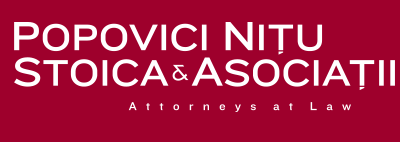- About Us
-
Expertise
- Banking & Finance
- Capital Markets
- Competition & Antitrust
- Corporate & Commercial
- Data Privacy
- Employment & Pensions
- Energy & Natural Resources
- Gambling & Betting
- Healthcare & Pharmaceuticals
- Insurance
- Intellectual Property
- International Arbitration
- Litigation
- Mergers & Acquisitions
- Project Finance/PPP, Concessions & Infrastructure
- Public Procurement
- Real Estate
- Restructuring & Insolvency
- Sports Law
- Tax
- Telecommunications, Media & Technology
- Transports & Logistics
- White Collar Compliance & Defense
- Our team
- Careers
- Publications
- News and Press
- Contact
Articles
Towards a more flexible insurance market
From a regulatory point of view, the end of the previous year was marked by significant amendments brought to Law no. 32/2000 on insurance companies and insurance supervision („Law no. 32/2000”) by Government Emergency Ordinance no. 201/2005 („OUG nr. 201/2005”). Such amendments reflect the efforts directed towards transformation of the Romanian insurance market into a more flexible and appealing business environment.
Exceptions from the mandatory separation of life and general insurance
The obligation to separate insurance activities into life and non-life insurances was provided as of 2004, upon the entering into force of Law no. 403/2004 for the amendment of Law no. 32/2000 – wherein insurers had to opt between one of the two main insurance categories above, until the end of 2005 the latest.
New regulations detail the above mentioned rule, providing for two exceptions (i) composite insurance activity and (ii) possibility to authorize insurers engaged in life insurance for general insurance activities, restricted however to accident and health insurances and viceversa.
According to new regulations, composite insurance, comprises the activity of the insurers licensed to carry out both categories of insurance until the end of December 2005. The latter may continue to conduct their activities, provided the management of such insurance categories is separated and observes certain operation principles, including without limitation (i) separate bookkeeping for the two insurance activities, (ii) using the profit registered pursuant to one of the two activities in order to improve the other, only in exceptional cases and pursuant to the Insurance Surveillance Commission (“ISC”) express approval, (iii) meeting a minimum of financial obligations (especially those related to solvency margins) separately, without an assets transfer from one activity to the other.
Restructuring and introduction of new concepts relevant to the insurance activity
The most important aspects restructured or newly introduced by Government Emergency Ordinance no. 201/2005 envisage (i) enlargement of the scope of entities operating on the insurance market, (ii) completing the notion of significant persons and (iii) introduction of the bancassurance concept.
Thus, previous distinction between European Union member states insurance companies and their related branches has been repealed. European Union insurance companies shall have the possibility to directly engage in insurance activities as of accession date, based on the right of establishment and free movement of services. Third states company branches shall observe licensing procedures before ISC, while insurers or reinsurers may also opt for the European joint stock company form – Societas Europea.
The concept of significant person has been broadened by including in this category members of direction committee and/or the supervisory council, managers of life and general insurance activities, in case of composite insurances, as well as other persons holding management positions specific to the field, subsequently established by application norms. Consequently, all referred persons shall be subject to the ISC licensing and supervision.
Bancassurance activity shall include distribution of insurance products additional to credit institution products, performed through credit institution network and/or offering insurance and credit institution products through joint distribution channels, with the observance of Law 32/2000 and norms enacted for its application.
Extension of ISC competencies
The new enactment grants ISC increased prerogatives related to control and sanctioning of breaches of insurance legislation. Thus, ISC shall be authorized to carry out a permanent, periodic or unforeseen control of the insurers, reinsures, insurance and/or reinsurance intermediaries.
Simultaneously with the entering into force of the new law, ISC shall have to ground all sanctioning decisions, as well as indicate the right to challenge such decisions to the persons concerned, as well as the challenging term, authority or court whereby referred challenge must be lodged.
Such amendments are practically transposing relevant European Union directives, endorsing once again the Romanian insurance market’ ushering into a more appealing and flexible reality.










